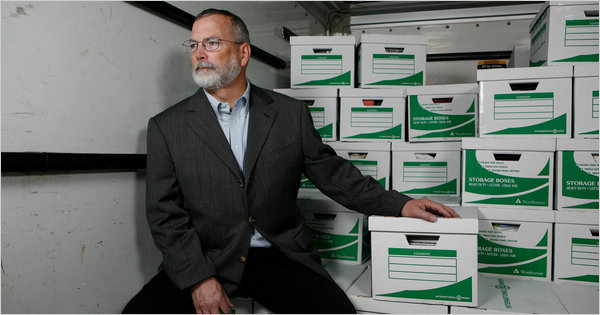Our Committments :
- To conduct a procedure according to e-Court rules.
- To prevent and control fraud.
When you visit e-Court websites:

When you visit e-Court websites:
Posted by John Markoff on March 04, 2011

“People get bored, people get headaches. Computers don’t,” said Bill Herr, a lawyer who used to work for a chemical company.
When five television studios became entangled in a Justice Department antitrust lawsuit against CBS, the cost was immense. As part of the obscure task of “discovery” — providing documents relevant to a lawsuit — the studios examined six million documents at a cost of more than $2.2 million, much of it to pay for a platoon of lawyers and paralegals who worked for months at high hourly rates.
But that was in 1978. Now, thanks to advances in artificial intelligence, “e-discovery” software can analyze documents in a fraction of the time for a fraction of the cost. In January, for example, Blackstone Discovery of Palo Alto, Calif., helped analyze 1.5 million documents for less than $100,000.
Some programs go beyond just finding documents with relevant terms at computer speeds. They can extract relevant concepts — like documents relevant to social protest in the Middle East — even in the absence of specific terms, and deduce patterns of behavior that would have eluded lawyers examining millions of documents.
“From a legal staffing viewpoint, it means that a lot of people who used to be allocated to conduct document review are no longer able to be billed out,” said Bill Herr, who as a lawyer at a major chemical company used to muster auditoriums of lawyers to read documents for weeks on end. “People get bored, people get headaches. Computers don’t.”
Computers are getting better at mimicking human reasoning — as viewers of “Jeopardy!” found out when they saw Watson beat its human opponents — and they are claiming work once done by people in high-paying professions. The number of computer chip designers, for example, has largely stagnated because powerful software programs replace the work once done by legions of logic designers and draftsmen
Software is also making its way into tasks that were the exclusive province
of human decision makers, like loan and mortgage officers and tax
accountants.
These new forms of automation have renewed the debate over the economic
consequences of technological progress.
David H. Autor, an economics professor at the Massachusetts Institute of
Technology, says the United States economy is being “hollowed
out.” New jobs, he says, are coming at the bottom of the economic
pyramid, jobs in the middle are being lost to automation and outsourcing,
and now job growth at the top is slowing because of automation.
“There is no reason to think that technology creates
unemployment,” Professor Autor said. “Over the long run we find
things for people to do. The harder question is, does changing technology
always lead to better jobs? The answer is no.”
Automation of higher-level jobs is accelerating because of progress in computer science and linguistics. Only recently have researchers been able to test and refine algorithms on vast data samples, including a huge trove of e-mail from the Enron Corporation.
e-Court was incorporated during 2010 under the China Corporations Act. The company is an independent group of experienced professionals like (former) lawyers, barristers, solicitors or attorneys, judges, university professors, industry and other legal interest groups. e-Court aims to provide competent, affordable, secure, transparent and speedy justice for everyone.
e-Court China is a division of e-Court Legal Services International, the world's largest online arbitration network: United Kingdom, Netherlands, Denmark, France, Spain, Switzerland, Italy, Sweden, Germany, Belgium, Russia, Canada, Brasil, United States, Mexico,, South Africa, Australia, New Zealand, India, China, Singapore, Japan, Hong Kong, Indonesia, South Korea, Malaysia, Taiwan
Address:Beijing, China
Telephone: +1-613-761-8625
Email: info@e-court.cn











